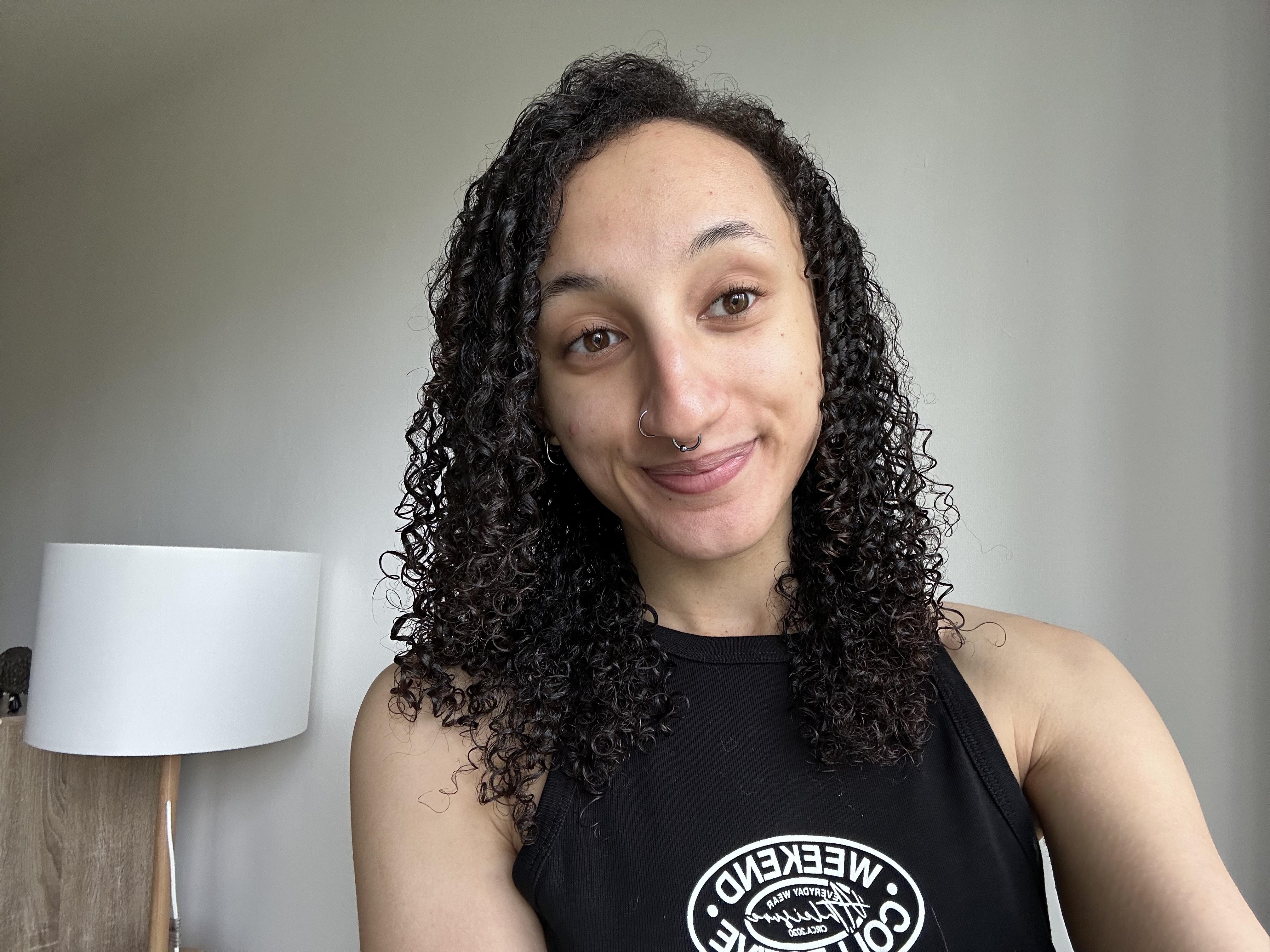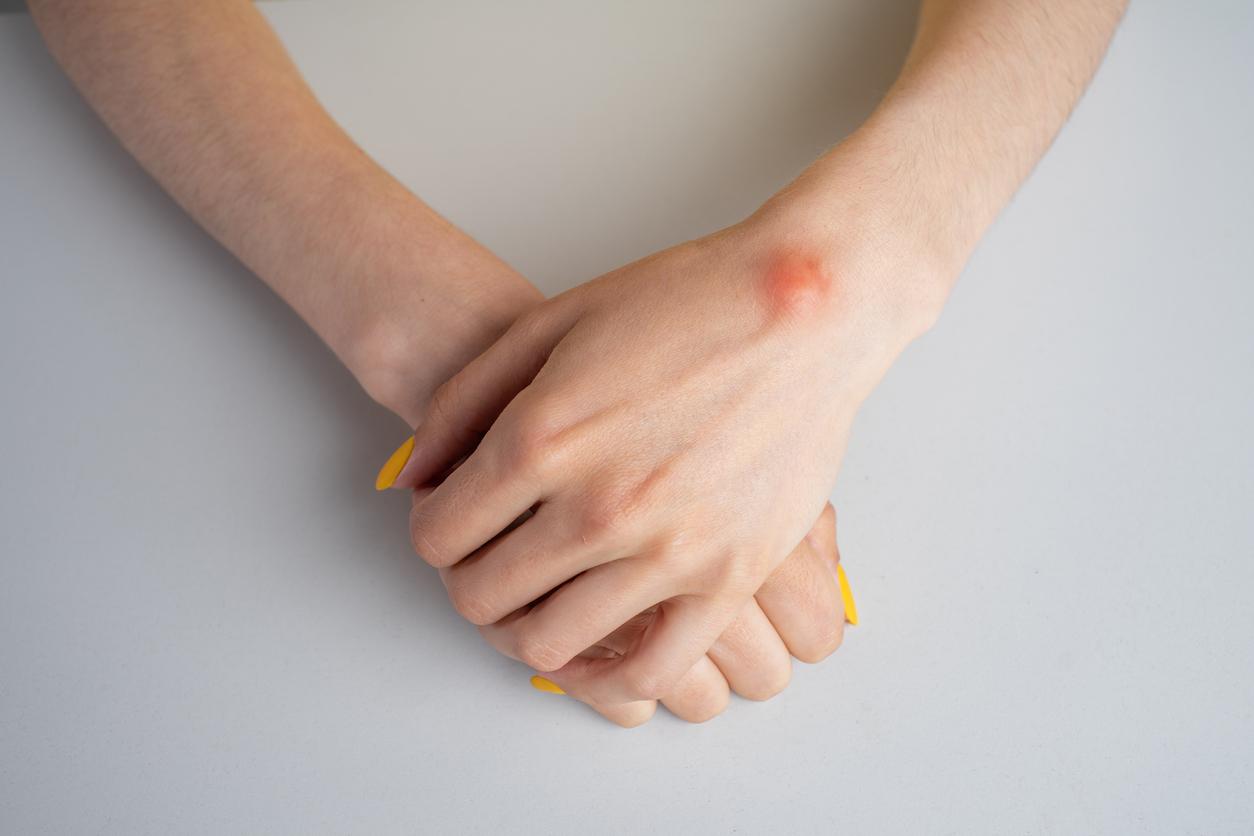At age 17, Tess was diagnosed with ulcerative colitis. In a short time, she realized how debilitating this chronic intestinal inflammatory disease is on a daily basis. She explains to us the social consequences of this invisible and taboo pathology.

- Tess, now 24, was diagnosed with ulcerative colitis, a chronic inflammation of the intestinal lining, at age 17 after having a colonoscopy.
- In the content creator, this illness, which occurred during the stressful year of the baccalaureate, manifests itself in bloody diarrhea and phlegm, severe abdominal and rectal pain, and chronic fatigue.
- To put her pathology “on hold”, she currently injects “a dose of 40 mg of Yuflyma, an immunosuppressant, every 14 days.”
“It all started during my baccalaureate year. I was very stressed and exhausted. I wanted to go to the bathroom 5 to 6 times a day, then it increased to 10, even 20 times, per day. day and night. Sometimes it was false urges for stools. After a while, I started getting blood in my stools. In high school, he. I already had to stop walking because I wanted to kill myself. It was a very complicated period because I couldn’t sleep anymore. says Tess, content creator on social networks.
Colonoscopy: “It was traumatic, because I had the impression of being exposed”
Faced with these worrying symptoms, his mother decides to make an appointment for him with the family’s general practitioner. “During the consultation, he did a rectal examination (an examination in which the professional inserts a finger into the rectum to identify problems or abnormalities in the lower part of the abdomen and pelvis). Afterwards I After examining it, my doctor referred me to a gastroenterologist. I did a colonoscopy (which consists, using a flexible endoscope, of observing the inside of part of the intestines, because it was traumatic). I had the impression of being exposed and that everyone had access to my privacy”declares the young woman who had studied to become an English teacher.
After this examination, the verdict falls: she suffers from ulcerative colitis, which affects one in 1,000 people in France. “I was 17 years old when I was diagnosed with this chronic inflammatory bowel disease (IBD). I had never heard of it. Following explanations from health professionals and research, I understood that it was an autoimmune pathology which results in recurrent inflammation of the intestines, colon and rectum. To date, the mechanisms of the appearance of ulcerative colitis are not yet well understood, because there are. little research on this condition, however, we know that it can affect anyone and occur at any time, particularly after a major period of stress and/or fatigue.
Ulcerative colitis: “When I was little, I almost went blind”
Tess, now aged 24, explains that this disease is characterized by an alternation of phases of activity, called “flares”, of variable intensity and duration, and phases without symptoms called remission. “When I received the diagnosis, I acted as if this pathology did not exist. So I didn’t necessarily pay attention to what I ate, and I wondered how long I was going to be calm, because I knew that every time, I would end up having a seizure so I was often absent from class and when I was in high school, I forced myself to live a ‘normal’ life, but it was complicated because I was. had to go to the bathroom often and since it’s a taboo subject, it was difficult to talk to my friends about it. she remembers.
In 2021, the twenty-something makes a “big crisis” and realizes how disabling this condition is on a daily basis. Yet, “we hear very little about it. I felt very alone. So I decided to break the taboo around ulcerative colitis, which is often confused with Crohn’s disease, by publishing videos on social networks. In these last, I discuss the symptoms and consequences of the pathology.” In Tess, ulcerative colitis manifests itself with bloody diarrhea and phlegm, severe abdominal and rectal pain, and chronic fatigue. “My stomach is also often swollen and my skin is hard. When I was little, I suffered from uveitis (an inflammation of the uvea). I almost went blind. It was later discovered that it was linked to this autoimmune disease. This eye disorder is rare, more precisely it affects 0.4% of patients.

When going out with friends, “I always check if there are toilets nearby”
Over the years, the content creator has become aware of the social repercussions of this invisible pathology. “I spend hours in the toilet and I’m exhausted all the time, so I don’t always have the strength to go out. When I want to see my friends, I always have to check if there are toilets nearby. close to the place where we are going to meet. At the restaurant, I have to be careful about the foods I eat because yes, I can no longer drink coffee, cow’s milk or even products containing gluten. alcohol, that’s over too! But, I still try to enjoy myself. At 24, I don’t want to follow a diet without residue, consisting of white meats, boiled potatoes, rusks, fish”, indicates the one whose ulcerative colitis has been recognized as a disability.
Currently, the patient, who is followed by the “fourth gastroenterologist” that she consulted, considers that she has a “classic life”because she doesn’t have a serious case. “I am following a treatment which allows my illness to be put on hold. I prick myself in the thigh, or rather I inject myself with a dose of 40 mg of Yuflyma, an immunosuppressant, every 14 days. I find that that compared to a friend, for example, who had an ostomy. There are other people who end up in hospital… Although it is not a pathology from which you die, you should not take it at face value. mild And no, contrary to what people think, it’s not just bad gastroenteritis We exist, we patients affected by ulcerative colitis, we are not alone and we should not have it! ashamed to talk about our illness!”















